How to Clean Window Screens Like a Pro

By Marilyn Syarto
Cleaning window screens is probably a must-do on your to-do list. But you may wonder—isn’t cleaning the windows enough? The screens actually protect your windows by grabbing all the dirt, dust, and pollen that gets blown around in the air during rainstorms, dust storms, and any other times during the seasons when allergens are floating in the air. But thanks to all of that protection, in the end, screens are a lot like bed pillows—they harbor all kinds of gunk and grime that you really don’t want to inhale.
This guide will take you step by step through the best methods to clean your window screens like a professional.
Photo via Julien K.
Benefits of Cleaning Window Screens
Here are a few benefits to cleaning your window screens, whether they are made out of metal or nylon mesh:
- Breezes blast dirt, pollen, and allergens past your screens and into your home disrupting interior air quality.
- Rain dampens screens and attracts mold and mildew build-up.
- Dirt- and mud-saturated screens, mixed with rainwater, make the glass on your windows dirty.
- Oxidized metal screens can damage windows by permanently etching the glass over time; you can hire a glass restorer to try to fix the costly problem.
- Insects tend to land and get caught in your screens, maybe they’ve spun webs, and sometimes they die on your screens resulting in old carcasses that partially disintegrate.
- Birds sometimes grab onto your window screens with their claws and talons (probably to grab bugs)—and you don’t want to know where their little feet have been.
- Birds also tend to leave droppings on window screens (don’t ask how they manage that!)
- You can’t see very well from a window covered with a dirty screen.
- Dirty screens make your home appear…dirty; clean screens make your home feel and look clean.
Photo via Ulla Graham
How to Clean Removable Window Screens
If you can reach your screens and remove them from the window intact with the frame, it can be an easy cleaning job if you use ammonia (which cleans windows and mirrors, too). You’ll get wet, so grab some old clothes, some protective gloves, and start scrubbing.
Warning: Remember, screening material is delicate, and you may have makeshift patches on them already that you don’t want to disturb, so be gentle while cleaning.
Tools and Materials Needed:
- Folding table
- Garden hose
- Large sponge, large soft-bristled brush, or microfiber cloth
- Spray bottle
- 1 part ammonia
- 3 parts tap water
- 1 tablespoon mild dish detergent
- Old, clean towels (optional)
- Protective clothing and gloves (not optional with ammonia)
Step 1: Prepare Cleaning Solution
Set up a folding table near the garden hose. Mix the ammonia, water, and dish detergent solution in a spray bottle.
Step 2: Prepare Screens for Cleaning
Gather screens you’ve removed from windows. Hose off both sides of a screen with a gentle spray of water from the garden hose. (You don’t want to have too hard of a spray that could cause a hole or loosen the screening from the frame.)
Step 3: Start Cleaning Window Screens
Spray one entire side of the screen with the cleaning solution. Sponge, brush, or use the cloth to wipe the solution methodically across the screen, then up and down the screen, to grab all the dirt. Rinse that side of the screen with a gentle spray from the garden hose.
Step 4: Repeat
Repeat the process on the other side of the screen. (You won’t believe how much dirt comes off.)
Step 5: Let Dry
Let the screen air-dry or wipe it down with an old, clean towel if desired.
How to Clean Non-Removable Screens
If you have windows and screens you can’t reach from the outside and the screens are not removable, you don’t necessarily need a ladder to get the job done. Stay safe and off the ladder with this method.
Tools and Materials Needed:
- Vacuum with the brush attachment
- Extension pole
- Soft-bristled brush with a handle or a microfiber mop head
- Garden hose
- Bucket
- Water
- Dish detergent solution
- Pressure washer (optional)
Note: There are outdoor window cleaning products that attach to your garden hose, offering an effective spray that reaches high windows. Use these products in place of a pole and brush/mop. They’re also formulated so that they do not damage any plantings or the siding of your home when they drip from the windows.
Step 1: Prepare Window Screens
From the inside, open your windows and vacuum your screens with the brush attachment. Be sure to completely close all the windows when you finish vacuuming.Use the garden hose to wet down your non-removable screens (remember to close your windows!).
Step 2: Mix Cleaning Solution
Grab your bucket and mix a few drops of dish detergent into the water until sudsy. (You are not using ammonia here because you don’t want it to drip down into unwanted areas or onto your hair and face.) Or, use a commercial cleaning product that attaches to your garden hose.
Step 3: Clean Window Screens
Attach a brush or mop head to an extension pole. Submerge the brush or mop head into the bucket to moisten. With your extension pole, clean your screens as best as possible scrubbing in a methodical direction. (If using a commercial cleaning product and garden hose, you do not need an extension pole or water/dish detergent mixture.)
Step 4: Rinse and Dry
Rinse thoroughly and air-dry.
Photo via Cynthia - Clockworkinteriors
How to Remove Rust From Window Screens
Rusty metal screens are actually a thing, and it’s not so easy to just power wash the rust off. With this job, you need a vinegar-soaked rag and some elbow grease to get rid of the rust. Vinegar should dissolve it, but you may need to repeat the process a few times. If you need something more powerful, make a paste of baking soda and water to scrub the rust on the screen. Rinse with water.
How to Remove Dried Bird Droppings From Window Screens
If bird droppings (or any other type of hardened gunk) are ruining your view, grab an old soft toothbrush to break it apart. Be gentle, though, because screening is delicate. However, the toothbrush will loosen the hard stuff in the nooks and crannies. You may have to do this from the inside if you can’t remove the screen from a high floor. Be sure to sponge rinse the area as best as possible.
When to Replace Window Screens
If your metal screening is too far gone, you may want to replace your screens with nylon mesh screens. Nylon is less expensive, but far less durable than metal screening, but it can help to eliminate rust and oxidation problems. If you only have one or two screens that are causing the problem, you can tackle this DIY job yourself, or go to a hardware store and have them replace the screening in the frame. There are also screening kits that help you build a customized screen from scratch.
Have you cleaned your window screens recently? Let us know your tips in the comments below!
Enjoyed the project?
Comments
Join the conversation
-
 Alice Norton
on Feb 14, 2024
Alice Norton
on Feb 14, 2024
Great tutorial, thanks!
-
-
 KateRos
on Feb 14, 2024
KateRos
on Feb 14, 2024
Last summer we decided to replace window screens on the first floor. I addressed screen tight customer service and they did the job fast. No complaints. But I understand that I will need to clean all of them soon. So, thanks for the useful guide, I'll follow it.
-

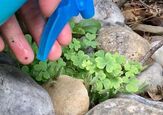

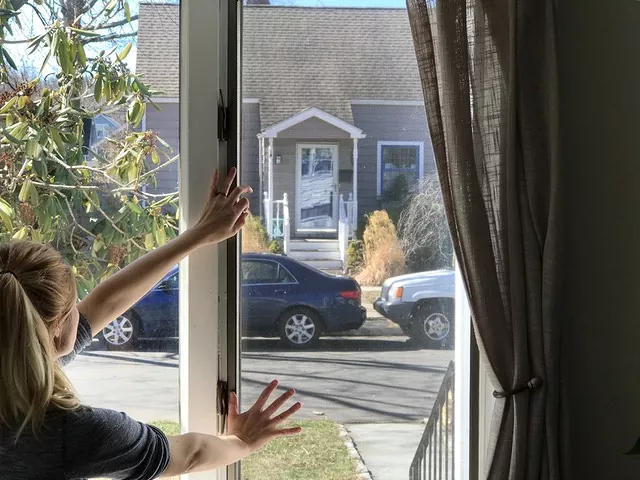


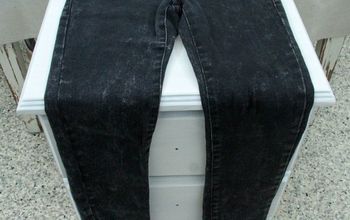
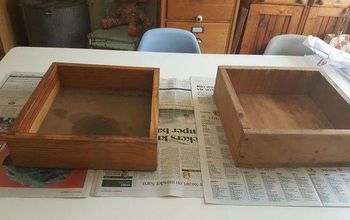



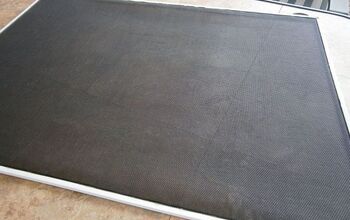

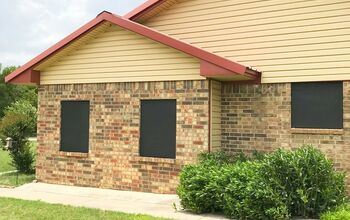

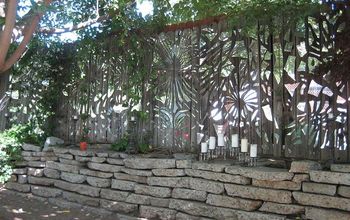


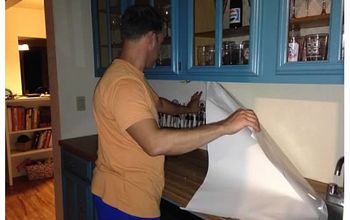

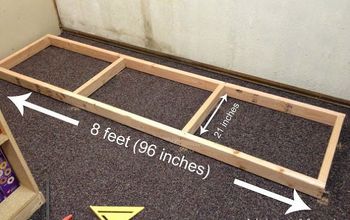


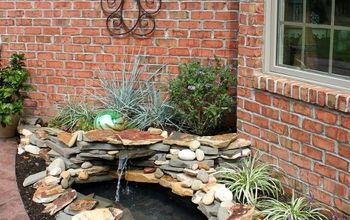
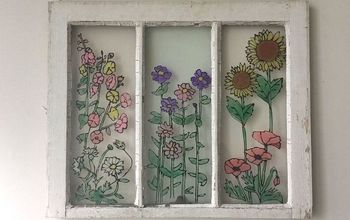

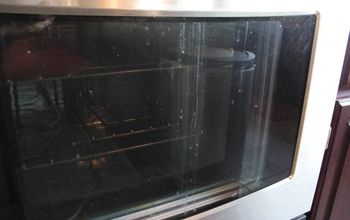
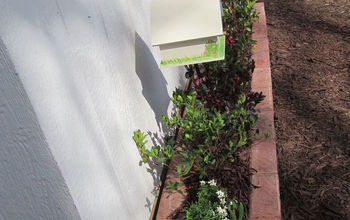

Frequently asked questions
Have a question about this project?